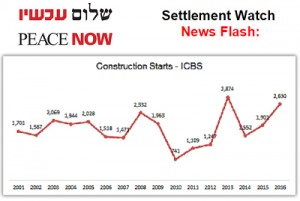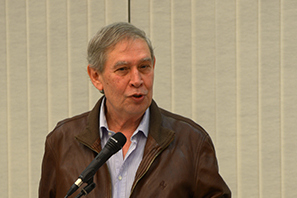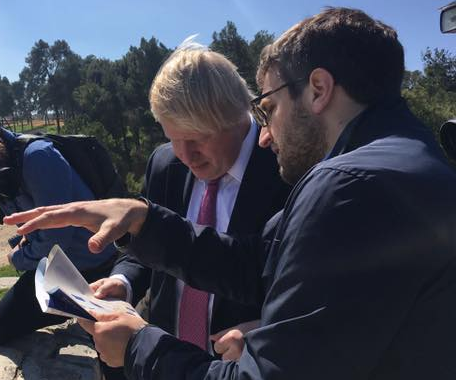 We know that pro-Israel does not mean blindly supporting policies
that are irrational, reckless, and counter-productive. Pro-Israel means supporting policies that are consistent
with Israel's interests and promote its survival as a Jewish, democratic state.
We know that pro-Israel does not mean blindly supporting policies
that are irrational, reckless, and counter-productive. Pro-Israel means supporting policies that are consistent
with Israel's interests and promote its survival as a Jewish, democratic state.
You've heard the arguments of the religious and political right-wing, and so have we. They've had their say. Now, we'll have ours.
Go HERE for all installments of APN's "They Say, We Say"
Are settlements really a problem?
Opposition to construction in settlement blocs is purely manufactured outrage. Even the Palestinians know that settlement blocs are going to become part of Israel.
Based on past negotiations, including the unofficial Geneva Initiative process (which yielded the Geneva Accords, the only detailed agreement ever achieved between Israelis and Palestinians) it seems likely that Palestinians will be willing to accept a peace agreement under which Israel retains control of some settlements, but only in return for (a) the evacuation of all other settlements and (b) land swaps, equal in size and quality, to compensate for the land kept by Israel. This is an important principle that, in the context of serious peace negotiations, could play a key role in the achievement of a viable final status agreement. However, it is disingenuous to cherry-pick this principle in order to justify new settlement construction outside the context of such negotiations and absent a peace agreement.
Under the Geneva Accords, the Palestinians (many of whom were and remain senior and influential political figures) agreed to Israel's annexation of some settlement blocs, in exchange for equal land swaps. However, such a negotiated agreement is far different from Israel acting unilaterally to annex territory, and it is important to note that the areas the Palestinian agreed would be ceded to Israel were far more modest than the expansive blocs of settlements and surrounding lands that Israel has de facto annexed with the security barrier. Indeed, the Geneva experience makes clear that any serious peace effort will have to recognize that settlement "fingers" stretching deep into the West Bank (like the Ariel and Kedumim blocs), and inflated settlement 'balloons" that effective block territorial contiguity of the West Bank (like the E-1/Ma'ale Adumim bloc) are inconsistent with the achievement of a peace agreement or the establishment of a viable Palestinian state. And, notably, further construction also threatens to make any agreement impossible, given that Israel does not have sufficient land reserves adjacent to the Green Line to compensate for all the areas that it wants to keep in the West Bank through one-to-one land swaps. If such land swaps become impossible, an agreement will likely be impossible as well.
Regardless of who may end up in control of or with sovereignty over these areas under a future peace agreement, if Israel is serious about wanting to make peace with the Palestinians, the future of these areas must be left to negotiations and not determined by unilateral acts. Unilateral acts by Israel only undermine those Palestinians who remain committed to a peaceful, negotiated solution to the Israeli-Palestinian conflict and who still support a two state solution. Such acts also waste goodwill towards Israel around the world, fuel boycotts and other activism targeting both Israel and the settlements, and pointlessly consume valuable Israeli political capital.



